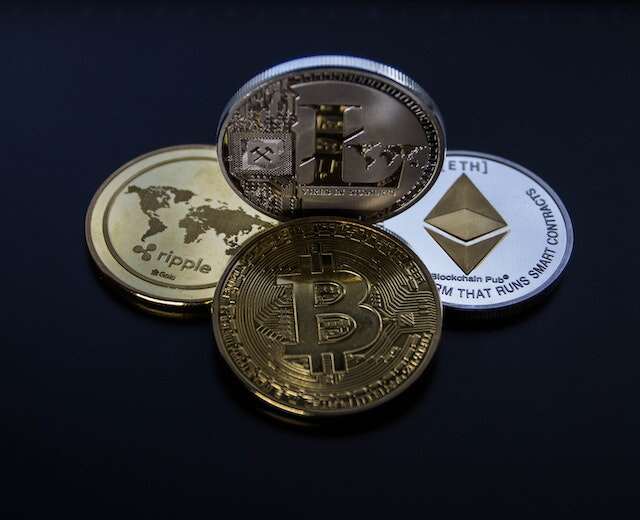6 Factors That Will Shape The Future of Crypto Market Making
Are you ready to discover the forces influencing crypto markets? From supply and demand to technical changes, security, regulation, sentiment, and fierce competition, all these factors affect the cryptocurrency market drastically. Stay ahead in the ever-evolving world of digital assets.

When Bitcoin emerged in 2009, the idea of cryptocurrencies seemed absurd. That public sentiment didn’t last and now, cryptocurrencies are worth their weight in gold. At least that’s what the finance gurus say. But, despite their value, cryptocurrencies are still relatively new and volatile. The cryptocurrency market is both a boon and a bane. There are a ton of factors affecting the viability of these markets. Today, we’ll be covering the top 6 factors that will shape the future of crypto market making.
What Is Crypto Market Making?
Much like the dollar, cryptocurrencies serve a specific purpose in finance and investment. Currencies like Bitcoin and Ethereum can be traded and have become popular investment options. However, cryptocurrencies aren’t traded on Wall Street. Instead, they’re traded on digital platforms called “Crypto Markets”.
Crypto market makers are vital to the seamless trading of cryptocurrencies. Crypto market makers provide the markets and exchanges with greater liquidity and full-order books to boost trading execution and make these platforms more attractive to investors. Simply put, market makers make it possible for crypto markets to operate effectively. Since crypto markets are accessible to everyone, they’re able to offer key financial services to people who are otherwise excluded from engaging in financial activity.
For example, it offers Caribbean-American consumers the opportunity to engage in the financial industry. It allows citizens in the United States and the United Kingdom to send money back to families in the Caribbean, without incurring exorbitant costs.

Factors Affecting The Future of Crypto Market Making
Here are the key factors affecting the future of crypto market making:
Supply and Demand
As with any financial trade and investment, supply and demand are essential. If something is in short supply, its value increases but if there is a surplus, its value decreases. Simply put, supply and demand directly affects inflation. The higher the demand and the lower the supply, the higher the price of crypto.
Supply and demand dynamics in the cryptocurrency sector differ from those in traditional markets. Some cryptocurrencies, such as Bitcoin, have a limited quantity, such as 21 million coins, but others, such as Solana, have a limitless supply. This means that while scarcity is not a major factor in the crypto market, it has some influence. Crypto market makers help with the liquidity of the market. This means supply demand is essential for the success of the crypto market and market makers.
If the delicate balance between supply and demand is affected, market makers won’t be able to do their job.
Technical Forces
Unlike fiat currencies, cryptocurrencies are heavily dependent on algorithms and software like the blockchain. Developers are constantly changing and adapting their codes to suit the needs of users and improve the performance of cryptocurrencies globally. These changes happen rapidly. For example, Ethereum quickly switched from a proof-of-work algorithm to proof-of-stake.
These changes can affect the price of cryptocurrencies and shift the market in unpredictable ways. This directly affects things like investment, supply, demand, and public perspective. All of which can affect the value of the cryptocurrency. Crypto market makers need to have the expertise and experience needed to quickly adjust to these changes or risk being left in the dust.

Security Issues
Cryptocurrencies run on decentralized blockchains, which makes it harder for hackers to get into but not impossible. The issue of security is a major factor impacting crypto markets. Hacking and fraud are key concerns for crypto investors and market makers. While cryptocurrencies are more secure than fiat currencies, it’s not as secure as one might imagine.
One of the most infamous attacks was the Ethereum DAO breach. A hacker discovered they could continue withdrawing large sums of money from the DAO (Decentralized Autonomous Organization). While this was stopped, it negatively impacted the price of Ethereum. A hack on the exchange leads to a drop in the cost of crypto because of a sudden lack of demand. After all, people are less willing to invest if there’s a risk they’ll lose everything.
Government Regulation
Unlike fiat currencies, cryptocurrencies and market exchanges aren’t generally regulated by the government. This provides freedom for more people to easily access the crypto market and engage in trade. For example, cryptocurrency adoption in Latin America and the Caribbean is on the rise since it offers people a relatively secure way to access key financial services, like being able to pay their rent with crypto instead of cash.
The lack of regulation allows developers to change and adjust the blockchain and algorithms as they see fit. While this isn’t necessarily a bad thing, it does increase the volatility of cryptocurrencies and makes reading market trends difficult. Government regulations offer investors some measure of security regarding their investments.
Sentiment
The Cryptocurrency market is extremely vulnerable to media hype and public opinion. News headlines, social media posts, and expert comments can swiftly alter investor emotions, leading market values to fluctuate rapidly. The court of public opinion is the most influential factor in the success of crypto markets. The popularity of a coin is directly related to how valuable it becomes. After all, value is where we place it.
If the public decides Bitcoin is valuable, then it becomes valuable since more people are investing in it which increases demand. But, if the public decides they’d rather invest in Dogecoin, then the value of Bitcoin could drop. This is known as market sentiment. So, to ensure the success of crypto markets, developers and market makers need to be able to read public sentiment and act accordingly.

Competition
The popularity of Bitcoin led to a cryptocurrency boom and now, there are hundreds of different cryptocurrencies out there. All of which are in direct competition with each other. There are tons of cryptocurrencies that offer the same financial products. Each cryptocurrency has its own distinct characteristics and value proposition, which contributes to the market's heated competition. For example, Ethereum and EOS are both in competition for smart contracts and dApps.
Competition can drive innovation, and new cryptocurrencies might offer new features and be marketed better. The development of cryptocurrencies has resulted in an increase in the number of exchanges where users may trade various cryptocurrencies. All of this directly affects the value of currencies, since competition affects demand.



